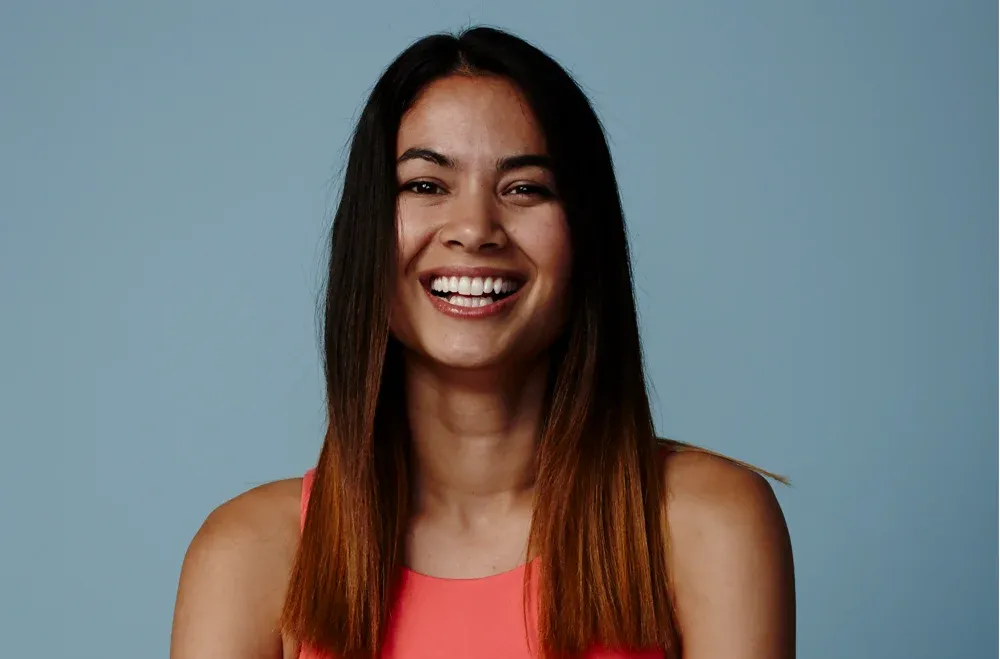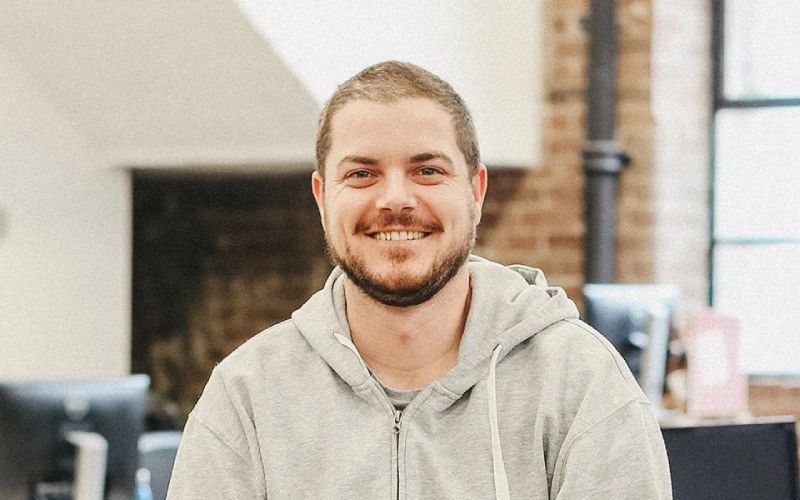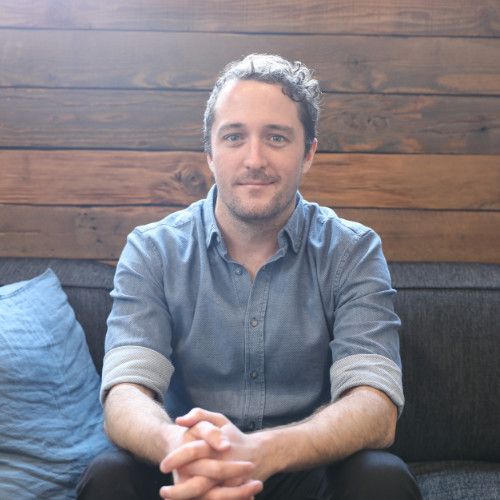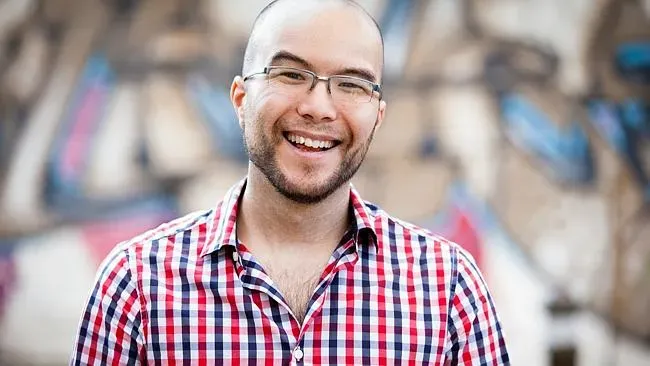Canva Battled It Out For The Best Data Talent, And Won

In this case study, Canva’s Scott Crowe showcases how Canva leverages Alooba’s skills assessment technology to replace manual CV screening and:
- Achieve an unbiased screening process for their data roles
- Assess 2000+ candidates for critical data skills with a 90%+ candidate satisfaction rating
- Reduce interviews per hire to save critical time
- Remove a 3 week bottleneck in time-to-hire
- Identify diamonds in the rough that were being excluded with CV screening
We trialed a few other tools and found Alooba to be the most efficient for what we needed. Alooba was able to tackle the high volume focus particularly, and also meant we weren't just rejecting people based on human bias. So it was the best service for what we needed. (Scott Crowe)

About Canva
Launched in 2013, Canva is an online design and publishing tool with a mission to empower everyone in the world to design anything and publish anywhere. Canva has experienced stratospheric growth, hitting a 40B USD valuation by 2021, placing it in the top 10 companies in Australia, and one of the fastest growing companies of all time. Canva is also regularly voted as the best place to work in Australia.

Data-First From Day 1
One of Canva’s core values is to “set crazy big goals and make them happen", as Cofounder Melanie Perkins puts it. From day 1, the Canva cofounders realised hiring the best possible people would be critical for their success.
You need to get quality if you want to grow a company from a small startup to something worldwide. (Cam Adams, Canva Cofounder)
Central to Canva’s incredible success has been the use of data-driven decision making throughout the business. Data has been central to all decisions, in all teams, and not just an afterthought. Data is not cherry picked to support someone’s opinion, it’s used to actually make decisions.
To support this culture of data-driven decision making, Canva has built out and scaled a world class team of 100s of data professionals.


Growing Pains
Like all high growth businesses, Canva noticed that the hiring process that worked when they had 10 people, was not working with 100, and it certainly wouldn’t scale to 1000.
With talent teams drowning in CVs (Canva gets 300 000 applications per year!) & the data team getting tied up with endless interviews & manually grading tests, the projects started to get delayed. The ‘crazy big goals’ were in jeopardy. Something had to give.
Scott Crowe heads up the talent team responsible for hiring the data rockstars Canva relies on, and Tim O'Keefe heads up the analytics team.
In 2021, Crowe and O’Keefe came together and concluded that the way they’d hired previously just didn’t work any more. Crowe & O’Keefe realised that:
- Relying on CVs as a screening tool meant they were excluding some great candidates, who might not have padded out their CV with all the buzzwords or worked at top tech companies.
- With a CV revealing someone’s ethnicity, gender, socioeconomic status and more, the screening step was open to significant recruiter bias.
- Candidates were sitting in the pipeline for 2-3 weeks without being contacted and were dropping out to other opportunities.
- Without an effective screening tool, the data team had to slog through far too many interviews with unsuitable candidates who looked amazing on paper but couldn’t back it up.
- Using a 8 hour take home challenge as a screening tool imposed a big burden on candidates to complete and also on the data team to grade & administer - the best candidates simply wouldn’t complete it.

Small Process Change, Huge Improvement
So with the issues clear, O’Keefe & Crowe reached out to engage Alooba for help. Even at a company as dynamic as Canva, process change is always a challenge. Part of the success of Alooba has been that only minor adjustments to the hiring process were needed.
Instead of relying on manual CV screening candidates to decide who to interview, Canva now gives every candidate a fair chance with an objective skills screening assessment, optimised for each data-related role.
With Alooba integrating seamlessly with other recruiting tools like Greenhouse and SmartRecruiters and simple role-based assessment templates available, onboarding for Canva’s talent and data teams was quick and easy.


Winning The Hearts and Minds of Candidates
Removing the bias of CVs has been a big step in the right direction for Canva on their data-driven hiring journey. Bias reduction is only part of the equation.
One of the age-old challenges in hiring is providing feedback to candidates. While many companies have their heart in the right place, the reality of dealing with 1000s of candidates quickly sets in.
At the application stage, candidates are also increasingly expecting more feedback than the typical ‘sorry, not sorry’ rejection email that comes with traditional hiring processes. With Alooba in place, Canva candidates now get detailed, actionable feedback delivered instantly. The best part? The Canva talent team doesn't need to lift a finger.
With Alooba, every candidate - not just those that get an interview - are guaranteed meaningful, actionable feedback.
Candidates tend to understand where they've failed and as long as they can appreciate why they didn't pass, and they also understand what they can improve and revisit.
Unsuccessful candidates at least get something useful from the process, and armed with that feedback in hand, motivated candidates can upskill and reapply later on, creating a virtuous cycle.
With an overall candidate satisfaction rating of more than 90%, the Canva candidates appreciate the fairness, relevance and accuracy of the assessments. With an attempt rate of more than 80%, Canva’s candidates agree that it’s a fair and reasonable way to decide who gets an interview, and are more than happy to participate in the process.
This was a very eye-opening assessment. I loved using Alooba and the way the assessment was formatted. It was also great to see how some of the knowledge I gained from university can be applied to real-life scenarios and business problems. (Carrie, Senior Product Analytics candidate at Canva)
The true hidden cost of CV screening is staggeringly high! CV screening costs come from the time spent manually reading CVs and the cost of the unsuitable interviews that result. With each interview costing businesses on average $1000 to run, it's essential to have a proper screening process. CV screening is not only super expensive, but also opens your hiring up to bias.

Hiring Lightening Fast
While 300 000 applications per year sounds like a blessing, this volume of applications can quickly become an unscalable and expensive nightmare to manage. With traditional approaches like manual CV screening quickly blowing out costs and slowing down time to hire, Crowe was keen to overcome this within the data hiring at Canva.
The volume [of applicants] also just scares people - to make it more streamlined, we were looking to automate some level of assessment with a quality bar that we trusted. Alooba supports both speed and quality - the speed to market/return to candidates is a competitive advantage.
Part of the challenge of dealing with such a vast volume of applications is that if this is handled manually, the screening stage can quickly become a bottleneck. Canva found that they were unable to effectively deal with the volume of applications before onboarding Alooba.
[The old process] would cause our lead times to be extended - candidates were sitting in the pipeline for 2 or 3 weeks before we were able to get to them and Alooba reduced that friction and increased our candidate engagement point from that early stage.
2-3 weeks are a lifetime in hiring, with the best companies completing their end-to-end hiring process in 2 weeks. With candidates sitting in the pipeline for so long, Canva was bleeding candidates to their competition.

Hiring The Best There Is
Hiring faster, reducing bottlenecks & reducing bias are only part of the equation. Ultimately, the most important aspect of hiring is getting the hires right. As Canva Cofounder Cam Adams says:
You need to get quality if you want to grow a company from a small startup to something worldwide.
By thoroughly assessing all their data candidates’ skills in Alooba, and removing the bias from manual CV screening, Canva has been able to ensure they are screening-in - and ultimately hiring - the best candidates available to them. Crowe points out:
[Alooba has] brought about a higher conversion rate and also a level of technical ability of candidates passing through. We trialed a few other tools and found Alooba to be the most efficient for what we needed. Alooba was able to tackle the high volume focus particularly, and also meant we weren't just rejecting people based on human bias. So it was the best service for what we needed.


What Next for Canva & Alooba?
With Canva and Alooba’s partnership now into its 3rd year, and Alooba’s data-driven hiring technology expanding rapidly, and the content coverage broadening, what’s left for Alooba & Canva?
Crowe expects to broaden the adoption of Alooba across Canva, into graduate & intern hiring, and across other business domains.
The engagement with the Alooba team has been really great. It’s gained great traction and it’s going well. It’s certainly part of the workflow we want to retain!
Whether you’re hiring 1 or 100 data roles in the next year, why not join Canva and progress to data-driven hiring with Alooba?


